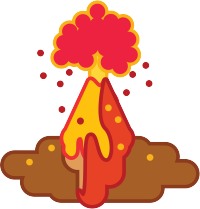Homeschool Science Curriculum for 4th Grade
A homeschool science curriculum for 4th grade helps foster critical thinking, logical reasoning, and problem-solving skills. These skills are valuable not just for scientific pursuits but also for everyday decision-making.
Sample Homeschool Science Curriculum for 4th Grade
Weeks 1-4: Environmental Science
1. Ecosystems and Biomes
- Introduction to different biomes.
- Activity: Create a biome-in-a-box project.
2. Food Chains and Webs
- Producers, consumers, decomposers.
- Activity: Draw or craft a food web.
3. Endangered Species and Conservation
- Learn about species at risk.
- Project: Research a chosen endangered animal and present findings.
4. Human Impact and Sustainability
- Pollution, deforestation, and our footprint.
- Activity: Start a home recycling/composting initiative.
Weeks 5-8: Astronomy
5. Earth's Rotation and Revolution Revisited
- Night and day, seasons.
- Activity: Shadow observations throughout the day.
6. The Solar System Deep Dive
- Detailed study of each planet.
- Project: Solar system model or poster.
7. Meteors, Asteroids, and Comets
- Differences and origins.
- Activity: Make a comet using dry ice (with supervision).
8. Star Life Cycle and Galaxies
- Life of a star, different types of galaxies.
- Craft: Lifecycle of a star chart.
Weeks 9-12: Physics Fundamentals
9. Forces and Motion
- Newton's laws.
- Experiment: Balloon rocket to demonstrate action and reaction.
10. Simple Machines In-depth
- Explore more complex machines using the basics.
- Activity: Identify machines in household items.
11. Energy Types and Transfer
- Potential, kinetic, mechanical, chemical, etc.
- Experiment: Simple pendulum to study potential and kinetic energy.
12. Electricity and Circuits
- Basics of electrical circuits, conductors, and insulators.
- Activity: Build a simple circuit using a bulb, battery, and wire.
Weeks 13-16: Earth's Structure and Geology
13. Minerals and Crystals
- Characteristics, how they form.
- Experiment: Grow salt or sugar crystals.
14. Plate Tectonics and Earthquakes
- Understand Earth's moving plates.
- Activity: Earthquake simulation using gelatin.
15. Volcanoes and Geysers
- How and why they erupt.
- Experiment: Baking soda and vinegar volcano.
16. Fossil Formation and Paleontology
- How fossils form, types of fossils.
- Activity: Make "fossils" using plaster of Paris and objects.

Weeks 17-20: Chemistry Basics
17. Matter and Its Properties
- Density, buoyancy.
- Experiment: Layer liquids of different densities.
18. Atoms and Elements
- Basics of atomic structure.
- Activity: Build an atom model using craft supplies.
19. Chemical Reactions
- Indicators of a reaction.
- Experiment: Combine baking soda and citric acid.
20. Acids, Bases, and pH
- Introduction to the pH scale.
- Activity: Test the pH of household items using litmus paper.
Weeks 21-24: Biology and the Human Body
21. Cells: The Building Blocks
- Introduction to cell parts and functions.
- Craft: Edible cell model using gelatin and candies.
22. Human Body Systems Overview
- Digestive, respiratory, etc.
- Activity: Outline a body on large paper label organs.
23. Muscular and Skeletal Systems
- How muscles and bones work together.
- Experiment: Chicken bone in vinegar to show bone flexibility.
24. Nutrition and Diet
- Essential nutrients, food groups.
- Activity: Plan a balanced meal.
Weeks 25-28: Weather and Natural Disasters
25. Weather Forecasting
- Instruments, reading a weather map.
- Project: Create a home weather station.
26. Tornadoes and Hurricanes
- Formation and safety measures.
- Activity: Tornado-in-a-bottle experiment.
27. Floods and Tsunamis
- Causes and safety measures.
- Experiment: Simulate a tsunami in a baking dish.
28. Global Warming and Climate Change
- Causes, effects, and mitigation.
- Project: Measure and chart local weather changes.
Weeks 29-32: Tech and Inventions
29. History of Computers
- Evolution of computing.
- Activity: Timeline of computer development.
30. Basics of Coding
- Introduction to simple programming.
- Activity: Use platforms like Scratch or Code.org for a project.
31. Famous Inventors
- Study notable inventors.
- Activity: Inventor biography report.
32. Modern Inventions and Innovations
- Discuss recent technological advancements.
- Activity: Predict an invention for the future.
Weeks 33-36: Wrap-up and Exploration
33. Review of Favorite Topics
- Students revisit topics they love.
34. Start a Science Fair Project
- Choose, plan, and start a project.
35. Finalize and Present the Science Fair Project
- Display and present the findings.
36. Reflection and Look Ahead
- Discuss the year, favorite experiments, and anticipation for next year's topics.
Adjust this homeschool science curriculum for 4th grade based on your child's interests, pacing, and available resources. It's beneficial to incorporate multimedia materials, hands-on experiments, field trips, and real-world applications to make learning diverse and engaging.
Homeschool Science Curriculum Samples
Homeschool Science Curriculum for Kindergarten
Homeschool Science Curriculum for 1st Grade
Homeschool Science Curriculum for 2nd Grade
Homeschool Science Curriculum for 3rd Grade
Homeschool Science Curriculum for 4th Grade
Homeschool Science Curriculum for 5th Grade
Homeschool Science Curriculum for 6th Grade



